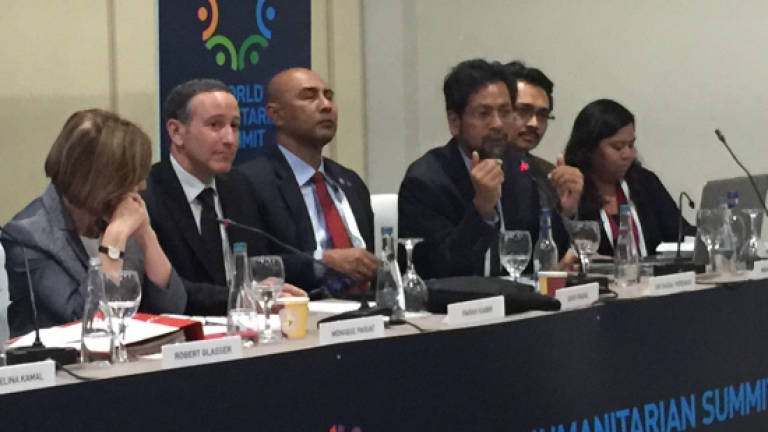Mercy Malaysia sets the tone

ISTANBUL: Mercy Malaysia is leading the global dialogue on implementing the 'Sendai Framework' to deal with disaster risk management at the UN World Humanitarian Summit here.
"Disaster risk reduction became a model of operations after the Indian Ocean tsunami with the adoption of the Hyogo Framework for Action. Asean is the first in the world to adopt a legally binding framework on disaster risk management since 2009," Mercy Malaysia president and chairman of the International Council of Voluntary Agencies, Datuk Dr Faizal Perdaus said.
"There was a challenge in getting communities to understand disaster risk reduction was something which they could benefit from. We fully embraced the Sendai Framework when we saw the words resilience and sustainable coming to the fore," he added.
Asean Secretariat director Adelina Kamal said as a result of experiences in responding to disasters such as the Indian Ocean tsunami, Cyclone Nargis and Typhoon Haiyan which together claimed over 370,000 lives, Asean is now a world leader in disaster risk management.
Robert Glasser, Special Representative of the secretary-general of The United Nations Office for Disaster Risk reduction (UNISDR), praised the Asean agreement as remarkable and in line with the focus in the Sendai Framework on disaster risk management as opposed to disaster management.
The panel also included Monique Pariat, director-general, European Commission's Humanitarian Aid and Civil Protection Department; Datuk Mohd Izani Ghani, CFO of Khazanah Nasional Berhad; Farah Kabir, Board Chair of Global Network of Civil Society Organisations for Disaster Reduction; Said Faisal, executive director of Asean Coordination Center for Disaster Response and Nikki Antonette De Vera, Programme Head of Center for Disaster Preparedness Philippines.
The first-ever World Humanitarian Summit saw more than 65 heads of state and government in two days of high-level discussions to advance global efforts to address the record numbers of people suffering from conflict, climate disasters and hunger.
They called for better aid system and new focus on preventing trouble before it begins and some delegates
pushed for a larger overhaul of the system.
"It is shameful that rich countries are moaning, complaining, sending refugees back, cutting deals behind their backs. We want to see rich countries step up to the plate, absorb refugees and give them opportunities in their countries," Winnie Byanyima, executive director of the aid group Oxfam International, told Al Jazeera.
At the centre of the summit was a document that lists a number of core commitments – to use global leadership to prevent and end wars, to uphold the norms of humanitarian law, among others.
But the commitments contained in the document are non-binding, making it a declaration of intent rather than action.